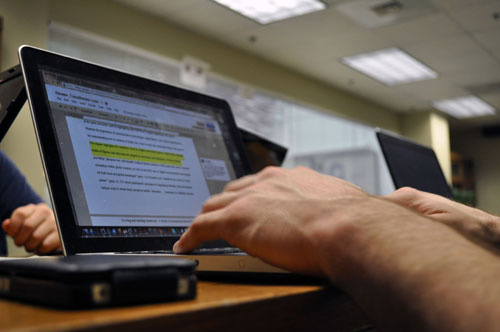
TLL concludes with Hawisher, Selfe, and Berry, in collaboration with Synne Skjulstad, synthesizing chapter findings of this fascinating life-history interview project. The chapter begins by showcasing the digital literacy projects of co-author Synne Skjulstad of Oslo, Norway. This attention to Skjulstad’s scholarship is important to the larger effort of the project because, as Hawisher, Selfe, and Berry admit: Skjulstad’s work “was an inspiration” for the methodology deployed for TLL (“Overview” para. 3). This section offers eight observations which connect the individual literacy narratives featured in the project. Three examples of observations: (1) Participants’ perceptions about technologies depended upon “the cultural ecologies” participants inhabited (Observation. 4); (2) Participants revealed that technological literacies were primarily individually acquired (Observation. 5); and (3) Digital media aided tremendously in the various stages of writing studies research (Observation. 8).
The fifth and final section of the conclusion offers “Closing Thoughts on Research Methodology,” which reflects on “Local and global ecologies,” “Transnational contexts,” “Literacy narratives,” and “Digital media” as four “assumptions and practices that continue to inform this ongoing research,” (para. 3). The metaphor of ecology acknowledges the many factors which contribute to one’s literacy practices while also yielding the awareness of oneself as a citizen of the world. This idea is complemented by the concept of transnationalism, which identifies the various cultural contexts and identities shaping one’s literacy practices. Literacy narratives as a genre help composers “formulate a sense of self”–a powerful implication for both composers and readers (para. 12). Lastly, the area of digital media intensifies literacy, learning, and meaning-making as digital media affords more than print-based documents–providing a richer experience for the composer and reader (as demonstrated by the contributions of this project).
All four areas present rich implications for teacher-scholars, though as the target demographic, we would like to hear about the authors and the influences of transnationalism on their learning. This concept has important implications for learners, teachers, and researchers to address what transnationalism means for the way we go about researching and teaching writing. TLL illustrates the need for writing scholars to further our understanding of the “trans-” in digital literacy practices across various physical, material, political, and socio-cultural geographies. Examining these and other like concepts allow teachers, students, and researchers provide moments of understand all that more fluid use of technological literacies might mean for writing research and pedagogy.
References
Fleckenstein, Kristie S. (2010). Vision, rhetoric, and social action in the composition classroom. Carbondale: Southern Illinois UP.
Kress, Gunther, & Theo Van Leeuwen. (2001). Multimodal discourse: The modes and media of contemporary discourse. London: Hodden Arnold.